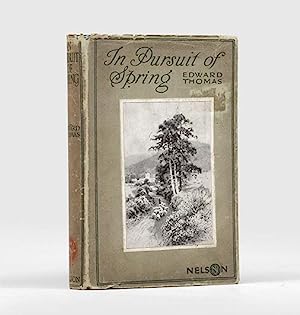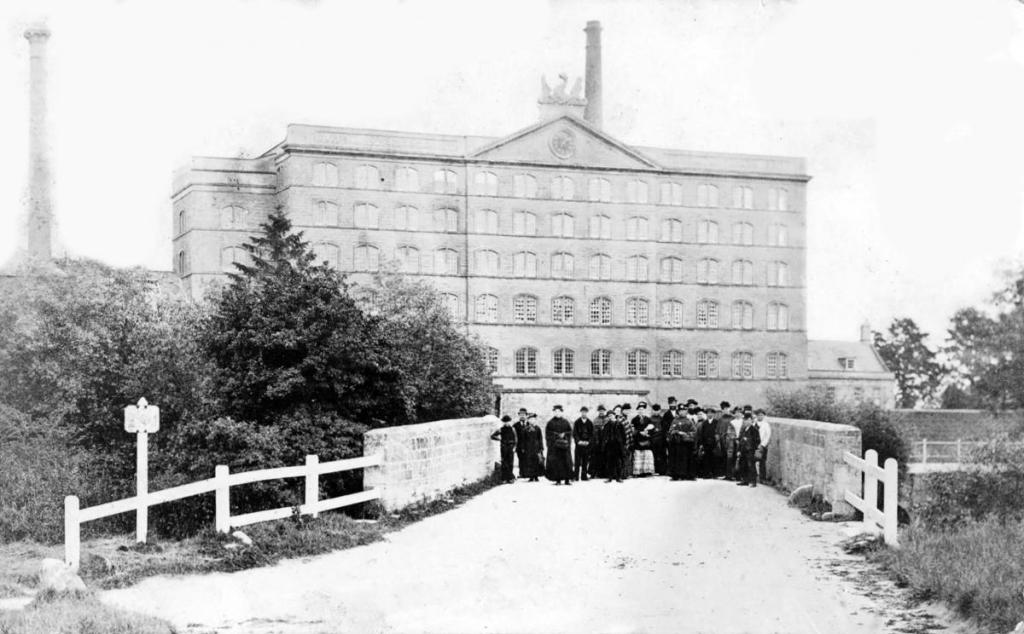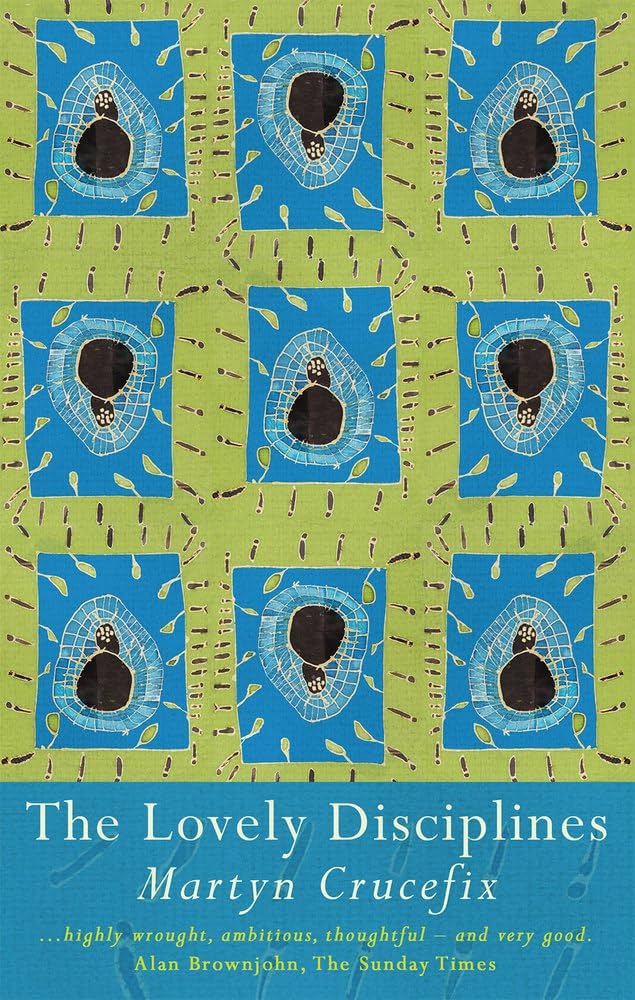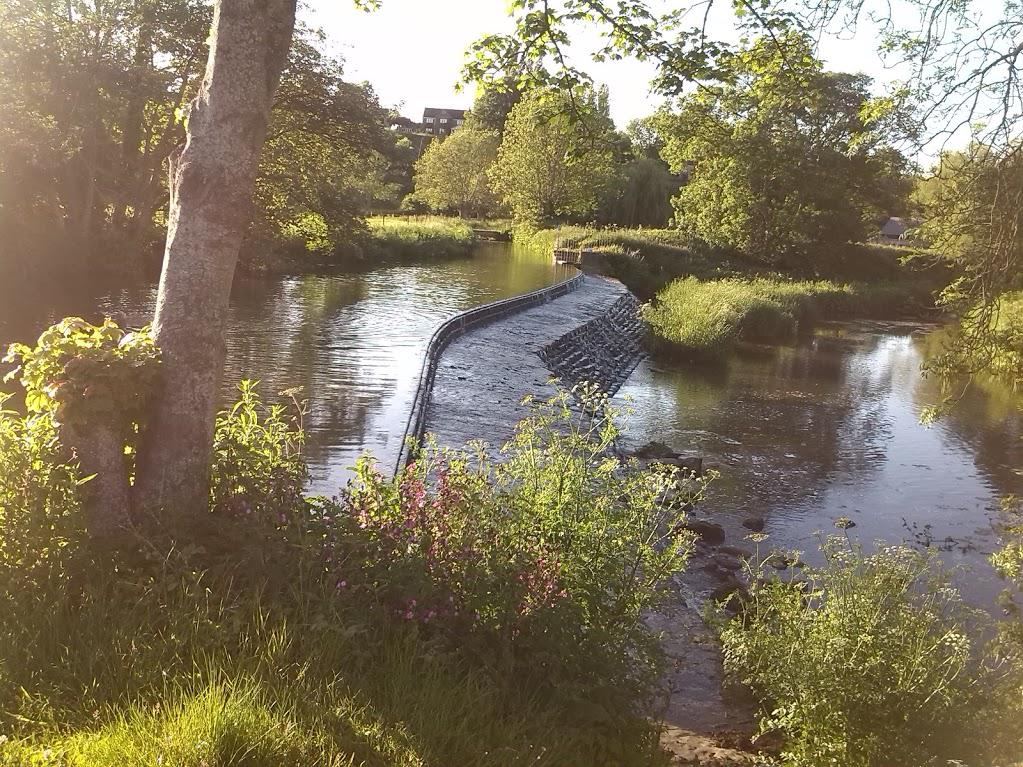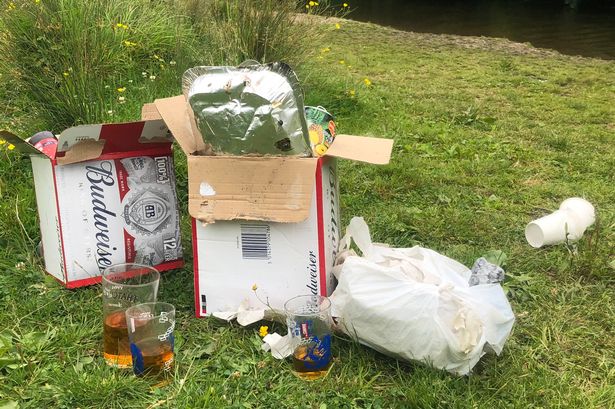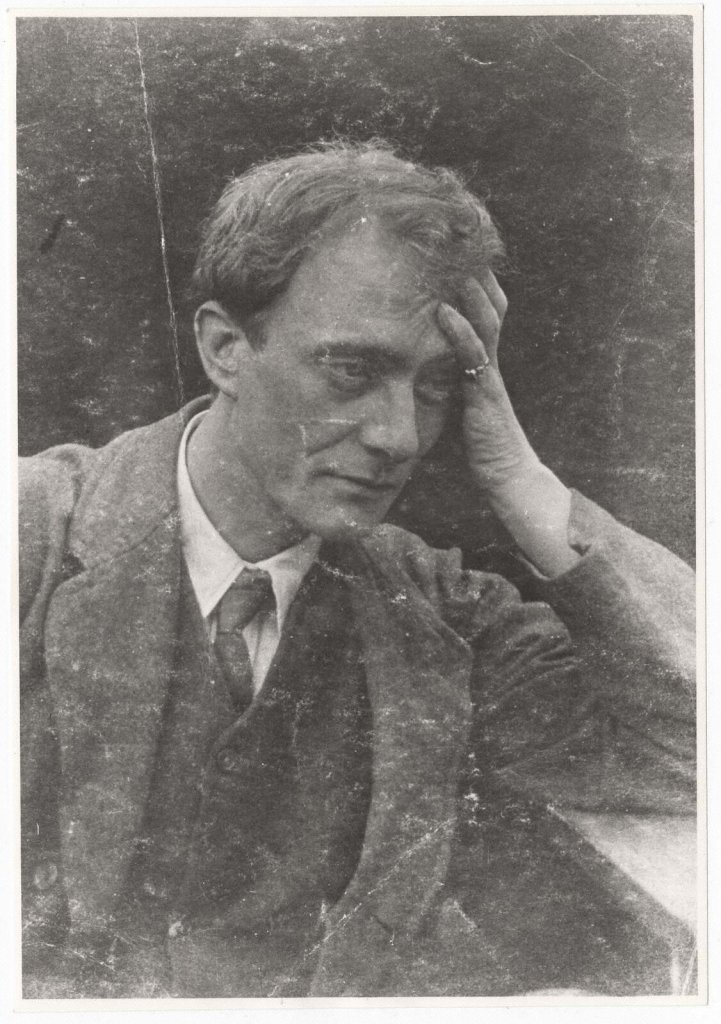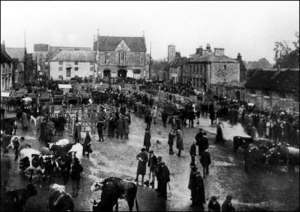I have recently been writing a piece for the excellent site, The Friday Poem, or the FRIP as it styles itself, edited by Hilary Menos. I’d had a poem accepted by the FRIP earlier this year and Hilary had asked if I’d like to contribute something in prose, perhaps choosing 3 ‘desert island’ poems. An impossible challenge, of course – only three!!?? – but an interesting exercise to be sure. I’ll say no more about what I submitted to the FRIP before it appears there in the near future, only to say that one of the poems I chose was by Edward Thomas.
In introducing ET’s poem, I found myself talking about his prose travelogue, In Pursuit of Spring (1914). This book – apart from being wonderfully evocative of a lost, pre-WWI England, as he cycles from London, through the South Country, to end up in the Quantock Hills – has always been special for me because he makes a stopover just outside my hometown of Trowbridge, in Wiltshire. The following day he cycles out of Trowbridge, through Hilperton (the village where I grew up), out to Semington, towards Melksham, then along the meadows at Challimead, to Holt, before passing the Nestle factory at Staverton. The latter, with its River Avon (the Bristol Avon) flowing nearby, was where I used to go fishing with our next-door neighbours. The factory is also where several generations of my own family worked, including my maternal grandparents and my mother. Thomas’s descriptions of the roads and countryside are vivid:
. . . the Phoenix ‘Swiss’ Milk Factory where I crossed the Avon at Staverton . . . is an enormous stone cube, with multitudinous windows all alike, and at the back of it two tall chimneys. The Avon winding at its foot is a beautiful, willowy river. On the opposite side of the road and bridge the river bank rises up steeply, clothed evenly in elms, and crowned by Staverton’s little church which the trees half conceal.
That church is where my grandparents were married. The following day, Thomas sets off again but stops this time at Tellisford. This is a small village to the west of Trowbridge, where a bridge crosses the River Frome. I’d occasionally come fishing here too, and later for the occasional romantic tryst, though more often the trip was for a picnic on the idyllic riverside meadows, listening to the water flowing over the ancient weir. Thomas’s mysterious companion, simply called the ‘Other Man’, describes the scene in 1914:
. . . a beautiful meadow slopes between the river and the woods above. This grass, which becomes level for a few yards nearest the bank, was the best possible place, said the Other Man, for running in the sun after bathing at the weir – we could see its white wall of foam half a mile higher up the river, which was concealed by alders beyond.
Almost nothing had changed when, years later, my whole family came here for a picnic, perhaps to celebrate my parents wedding anniversary . . . I remember speaking to a man who lived nearby. He was rebuilding the weir which had fallen into disrepair. Years later again, I wrote a poem about the occasion (later published in my book The Lovely Disciplines (Seren Books, 2017). Called ‘Rebuilding Tellisford weir’, I gave the poem an epigraph from In Pursuit of Spring: ‘turn aside to see Tellisford’. The poem’s opening lines focus on the man’s self-given task, one of both conservation and innovation:
He refuses shade in midday heat
the old man walking
in his honey-brimmed hat
along the drained weir-shelf
x
that looks today like stacked loaves
its pallid smooth ranks
of Victorian stones
mapping precisely the Domesday line
x
where he patrols to and fro
proudly surveying the place he owns
this stretch of England
his plan to restore the workings
x
of the old watermill
to feed the Grid—and it is for this
he has ordered tons of sludge
to be dredged above the drop
x
and dozens of loosened stones
to be replaced to give
the mill-race its full head
and today he walks the slippery length
x
of the dammed weir-shelf
For some reason, in my writing of the poem, I wanted to distance my own family’s part in the scene, perhaps because the incident I was recalling was a long while ago. The man hails the picnickers (rather than the other way round, which is I think what happened):
he cries what marvellous weather
x
then falls to conversation with a couple
who are celebrating sixty years
in their self-built house
with their three good boys
x
raised and schooled to distant homes
though today they recline
on trashy garden chairs
on this riverbank as if to watch
x
the old man in an antique yellow hat
who walks noting progress
on the weir
My own family appear more as careless tourists than anything else. It is the man’s project which gets more attention. And – as the thought develops – it is his own state of mind that seems to interest the poem.
and how could they know
he’s something on his mind
x
for the next hundred years
how could they know more and more
these days he struggles to endure
the roaring of the fish-shoot
x
with its silted water
and these stilted conversations
with such ordinary people
their Diet Coke and egg mayonnaise
x
their crisps for the grandchildren
their Sunday newspapers
let blow and tumble across the meadow
reminding him of himself
x
how his mind often strays
up the ditch-line to the old drovers’ road
where for fifty years
their cars have pinked and purred
x
especially at night as they mount
slowly the gravel verge—
O so many love-cars for so many years
drawn to his father’s land
x
each in pursuit of what the river gives
of moonlight and chance
of the ticking of an engine
as it cools of blonde hair spilling
x
across dark seats in disarray
he knows the windows rolled to the dusk
the sickly smell of water
the murmur within
I rather like the way the poem, by this stage, seems to be moving in and out of various consciousnesses; here the narrative seems to be visiting the minds of the lovers who come to this quiet place for privacy, though the man’s noting of the fact has something of the voyeur about it too. He goes on to imagine – or perhaps he is remembering his own romantic experiences – the ‘talk / when it’s over’:
though he knows well
it is never really over—
and it’s because of this
he will not turn them away
x
although they holler and soil and litter
still he’d grant them every wish
for this his feet edge now across
the weir-shelf this afternoon
x
for this he takes his uneasy stand
hands thrust in his pockets
their cars pulling in to the dark hiss
of white gravel everywhere loosening
The final image – syntactically, the last given reason as to why he allows the lovers, as well as the ill-behaved picnickers, to use the riverside that (in the poem at least) he owns – is intended as an image of transience, of impermanence. It’s this knowledge that really drives him in his conservation project, the rebuilding of the weir, the installation of generators to connect to the Grid. His obsession (which is of course really the author’s, my own) is with the passage of time which brings in change and destruction and against which he builds (as the author builds the poem) something to stand against it, a kind of memorialisation which is also an innovation: ‘the talk / when it’s over though he knows well / it is never really over’. Throughout, I wanted to evoke something of Edward Thomas’s own work, partly through my formal choices. In ‘Gone, gone again’, for example, he views an old house:
Outmoded, dignified,
Dark and untenanted,
With grass growing instead
X
Of the footsteps of life,
The friendliness, the strife;
In its beds have lain
Youth, love, age and pain:
X
I am something like that;
Only I am not dead,
Still breathing and interested’
